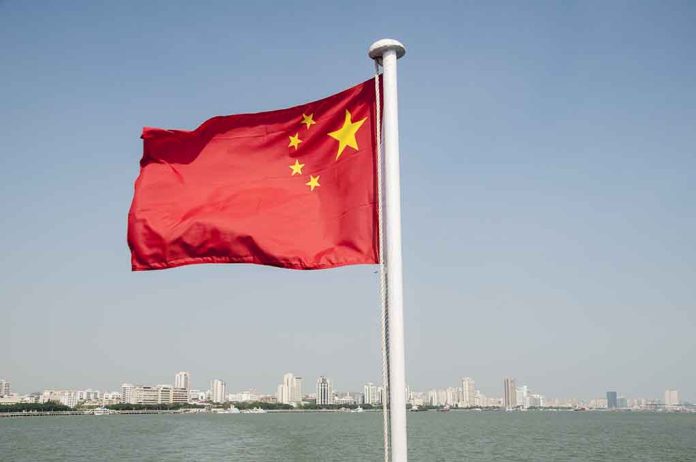
At a Glance
- U.S. defense officials are encouraged by regional partners’ collective efforts against China’s South China Sea claims.
- China is forming new alliances with Indonesia, Singapore, and East Timor as part of its military expansion.
- Close collaboration between the U.S. and its allies is crucial for maintaining regional security.
- Many nations, including Japan and the UK, and organizations like the G-7, have condemned China’s actions in the South China Sea.
- China’s activities include harassment of legal economic activities and confrontations with U.S. forces and allies.
China’s Expansion
China is extending its military and political influence in Southeast Asia beyond traditional allies like Cambodia and Laos. New partnerships are being forged with Indonesia, Singapore, and East Timor through increased joint military exercises and arms trade. This initiative aims to secure China’s interests in local waters and strengthen its regional diplomatic connections.
U.S. defense officials praise the increased collaboration among allies and partners to counter China’s claims and actions in the South China Sea. Lindsey Ford, deputy assistant secretary of defense for South and Southeast Asia, emphasized before the House Foreign Affairs Committee the importance of joint efforts in deterring China’s military expansion in the region.
Renaming the #SouthChinaSea
The issue of renaming the South China Sea has been suggested by various observers to counterbalance China's growing assertiveness in the region.
The name "South China Sea" itself is a relic of a colonial era when European navigators charted the… pic.twitter.com/H8Zncjdiev
— Indo-Pacific News – Geo-Politics & Defense (@IndoPac_Info) September 28, 2024
Regional Security Dynamics
Over the past decade, China has asserted control over the South China Sea, constructing military outposts in the Spratly Islands and engaging in aggressive tactics. These actions include sinking Vietnamese fishing vessels, harassing Malaysian energy exploration, and using military equipment against Philippine resupply boats. Many nations have expressed concerns over such provocations, leading to increased efforts to support the rule of law in the region.
Nations like the Philippines, Indonesia, Malaysia, and Vietnam are actively challenging Chinese encroachment. Additionally, countries such as Australia, Japan, Canada, the UK, and the EU have condemned China’s behavior in the region. At the recent Camp David Summit, Japanese and South Korean leaders also voiced their opposition to China’s aggressive actions.
China’s military in ‘competition for partnerships’ with US in Southeast Asiahttps://t.co/vohdwGGtVl
— South China Morning Post (@SCMPNews) September 28, 2024
U.S. Involvement and Strategy
The U.S. Department of Defense is taking proactive measures to counter Chinese coercion. These measures include building asymmetric advantages for allies, allocating $475 million to enhance maritime security capabilities in Southeast Asia, and conducting complex military operations and exercises in the region. The U.S. has stated its defense obligations under the Mutual Defense Treaty with the Philippines extend to armed attacks in the South China Sea.
The broader implications for U.S. and Southeast Asian strategies suggest that undermining China’s confidence and deliberate cost imposition by Southeast Asian states could be effective. This would involve multi-lateral coalitions and regular rotational deployments to maintain a strong regional security presence.
Sources:
U.S. Official Says Allies Acting Together to Deter China
China’s Military Aggression in the Indo-Pacific Region
The Puzzle of Chinese Escalation vs Restraint in the South China Sea
Countering China’s Malign Influence in Southeast Asia: A Revised Strategy for the United States
Military Competition between the United States and China in the South China Sea: A Critical Analysis
China’s military in ‘competition for partnerships’ with US in Southeast Asia
Territorial Disputes in the South China Sea
Preventing War in the South China Sea
Opinion | As China builds military ties across Southeast Asia, one factor stands in the way













